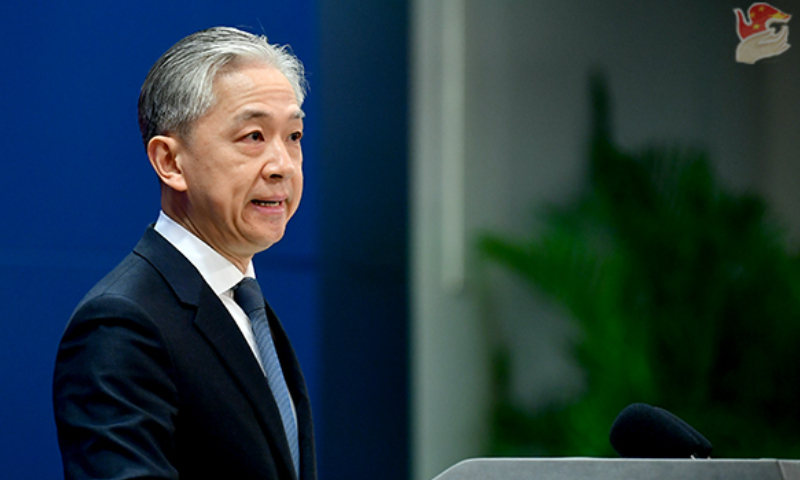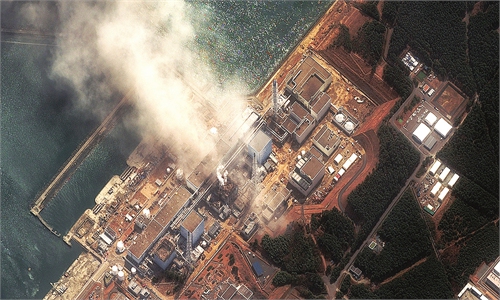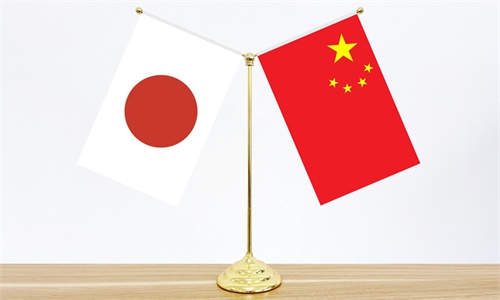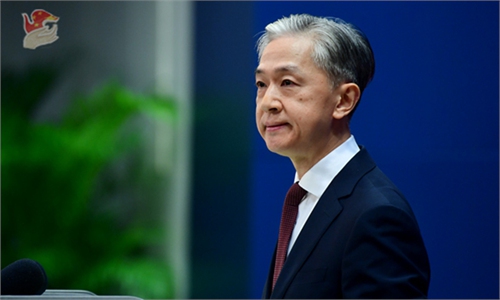Chinese FM says Japan obsessed with creating bloc confrontation to harm regional interests as Kishida keeps attacking China ahead of G7 summit

Chinese Foreign Ministry spokesperson Wang Wenbin Photo: fmprc.gov.cn
With regard to Japanese Prime Minister Fumio Kishida's remarks of opposing China's and Russia's unilateral change to the status quo by force, Chinese Foreign Ministry said that Japan, as the host of G7 summit which will start on Friday in Hiroshima, is obsessed with provoking and creating bloc confrontation to harm regional interests.
The G7 will seek to send a strong message to the world that in order to protect the international order, they will not accept unilateral attempts by China and Russia to change the status quo by force in the face of "Moscow's war in Ukraine and Beijing's military assertiveness in the Indo-Pacific," Kishida said on Monday during an interview with media outlets at the Prime Minister's Office, as quoted by the Japan Times.
Chinese Foreign Ministry spokesperson Wang Wenbin said that China resolutely opposes Japan rehashing the same old arguments and sparing no effort to smear China, especially that Japan tried to use it as a cover for its own attempts to unilaterally change the status quo.
Japan has been attempting to change the status quo by conniving some of its domestic forces to embellish its aggression history, to whitewash militarism and even to advocate "a Taiwan emergency is a Japanese emergency," as Potsdam Declaration and Cairo Declaration have clearly read that the returning of the Taiwan region to China is an integral part of the post-World War II international order, said Wang.
Wang said "If Japan truly opposed unilateral changes to the status quo, it should clearly restrain the forces trying to turn back the clock on history, seriously reflect on its own history of militaristic aggression, reaffirm its adherence to the post-World War II international order and abide by the one-China principle."
By keeping releasing negative messages targeting China ahead of the G7 summit, Japan tried to use multilateral mechanism to enlarge smear and containment toward China in order to expand its influence in geopolitical and diplomatic issues and to get dominance in some regional and international affairs, Da Zhigang, director of the Institute of Northeast Asian Studies at the Heilongjiang Provincial Academy of Social Sciences, told the Global Times on Tuesday.
But experts said how much support Japan's smearing on China could win from other G7 members is still doubtful. "Not all the G7 countries will approve or are willing to be tied to the confrontations Japan created to contain China as the hyping of inharmonious elements, such as the Diaoyu Island and the Taiwan question, will also hurt their interest," Da said.
On Saturday, Japanese Foreign Minister Yoshimasa Hayashi accused China of "intensifying its unilateral attempts to change the status quo in the East and South China seas" and said China and Russia are "strengthening military collaboration" at a meeting of European and Indo-Pacific foreign ministers in Sweden.
Experts said that by creating the impression that China and Russia are united, Japan magnifies the threat of China and Russia and binds the two countries together because portraying China and Russia as a so-called military alliance is a very important excuse for Japan's own military expansion.



